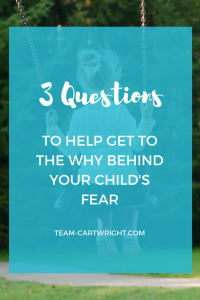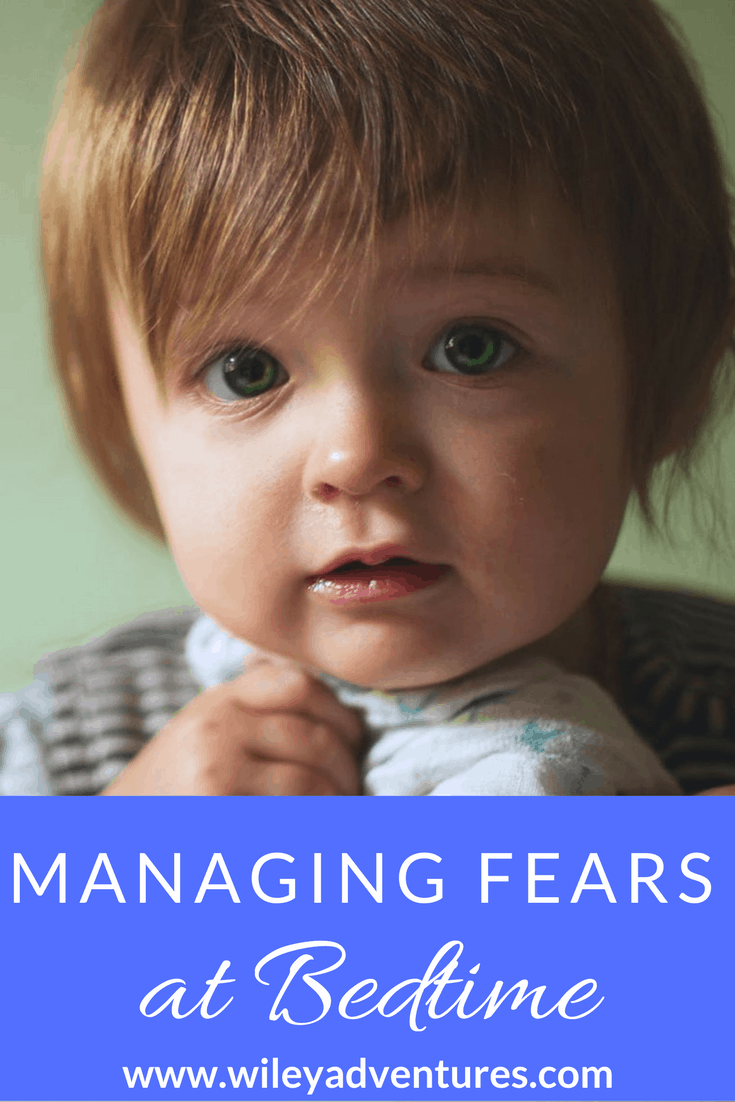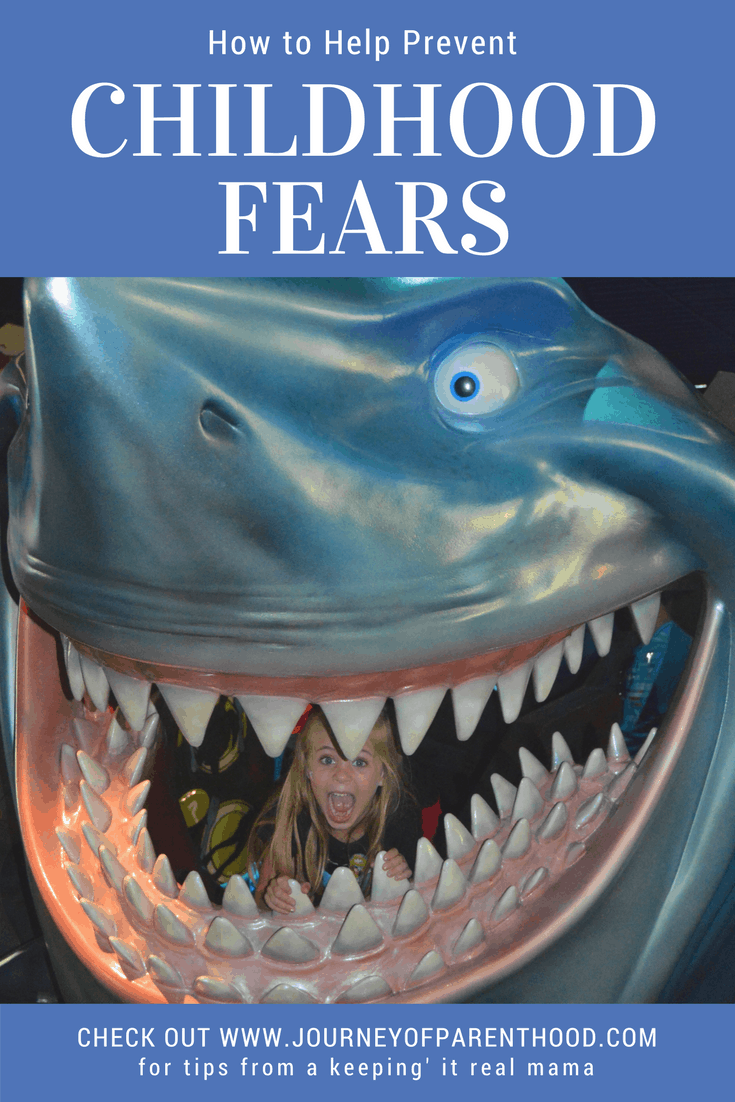Childhood fears: Real vs. Fake Fear
Fears. We all have them. Sometimes they are rational, sometimes not. Fear has evolved as a safety mechanism, and it can be a helpful emotion. I don’t want my kids to be afraid of anything, but I know the development of fears is normal and a sign of intellectual and emotional growth. But there are occasions when my son tells me that he is scared of something, and, well, I’m just not buying it. I respect my children’s feelings and want to help them work through their fears. And part of that means weeding out what is a real fear and what is. Here is how I work to distinguish between real and fake fears.
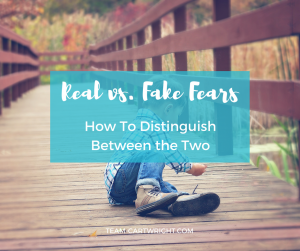
What's In This Post?
Why Fake Fear?
The first question that needs to be addressed is why would children have fake fears. Well, the truth is I don’t think a lot of young kids know that they are faking their fear. They aren’t setting out to deceive. But the fear that is manifesting isn’t the issue. It is a symptom of the real problem. I want to suss out the issue and address that, not the fear. And if a true fear is emerging, then that needs to be taken seriously and addressed.
How To Weed Out Fake Fears
When do the fears come out?
Are the fears only coming out at specific times? For example at bedtime or nap time? If this is the case the issue might not be the fear, but not wanting to go to bed. One way to check is to see if the fear can easily be assuaged. For example, if your child says he is afraid of the dark and doesn’t want to go to bed, you can offer a nightlight. If your child still won’t go to bed then perhaps the fear isn’t the issue. There is something else going on to make your child not want to go to bed.
Do the fears only come out when you are super busy? This might be a sign that your child is looking for attention. Do they appear when your child is asked to do a chore? Maybe they need some help finding their independence. Considering the timing of when fears are expressed is important in figuring out if the fear is the issue, or if something else is.
Has your child recently seen others with this fear?
Ben recently told me he was afraid of heights. Now, he told me this while he was on the top of the slide. It is possible that the fear was triggered by his location, but I happened to remember he had recently seen a Peppa Pig episode in which Daddy Pig talked about being afraid of heights. I asked him if he was afraid of heights, or if Daddy Pig was. And Ben answered Daddy Pig. This helped him realize that he wasn’t actually afraid of anything, he had just seen the fear.
Children are sponges. They might hear a friend or family member expressing a fear, or see one on tv or in a book, and think that this fear applies to them. In these cases, the fear again is not the issue. I think this is more of a case of practicing empathy and determining their sense of self. Both are important to work through, but they require different methods.
Do the fears make sense?
Does the fear your child is expressing make sense in the context of their lives? Fears that seem to come out of nowhere are often a sign of something deeper going on. For example, if your child is suddenly afraid of the bath when previously they have adored it, something more than just the bathtub might be going on. This is the time to think back and see if anything has happened that might be bothering your child. Maybe they had a negative experience while swimming that they still need to work through.
The fear of the dark is another example of a fear where the dark might not be the issue. If your family has recently had a traumatic event, those emotions might come out as fear. The same is true if your family is going through a stressful situation. Moving, a new baby, starting a new school. All these are major life events that can create stress for kids. Children don’t know how to handle that stress and it can manifest as a fear. So the issue is not what your child is afraid of, but a different stress in their lives.
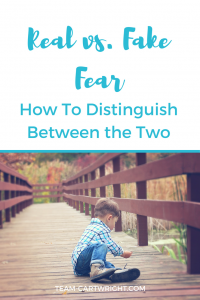
Childhood fears are real and need to be taken seriously. But it is important to take a look at the fear and determine if it is a true fear or if something deeper is going on. This will help you get to the root of the issue and find a solution faster.

Check out these additional posts you might like!
Encouraging Independence in a Reluctant Child
“Mommy, you need to smile.” Empathy Developments
How to help your frustrated preschooler
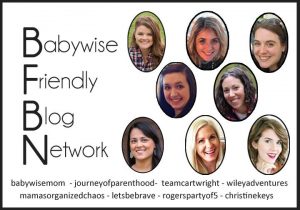
Be sure to check in every day this week for more from the ladies of the BFBN!
Monday: Chronicles of a Babywise Mom: What To Do When Your Child is Scared of the Dark
Tuesday: Mama’s Organized Chaos: How To Ease Your Toddler’s Fears
Tuesday: Let’s Be Brave: 9 Ways to Teach Kids Bravery
Wednesday: Christine Keys: 3 Powerful Ways to Conquer Your Toddler’s Irrational Fears
Wednesday: Wiley Adventures: Managing Fears at Bedtime
Thursday: Team Cartwright: Real Vs. Fake Fears: How To Distinguish Between the Two
Friday: The Journey of Parenthood: How To Help Prevent Childhood Fears


